Maui has great resorts and many of them. It also has a large and much-improved airport, and the Valley Isle succeeded in attracting the most flights (including widebody) to Hawaii of any airport other than Honolulu. But now it has clearly become too much of a good thing. So what happens next and will there ever be a way to make everyone happy?
We’re focusing today on what is happening at some of the iconic Maui beaches, as well as in Lahaina, Wailuku, and soon thereafter, Hana. In the next few months, Maui will implement substantial visitor-only parking fees and limit hours of visitor parking entirely, at a range of popular beaches. The final start date of early 2023 is still being devised together with some further specifics outlined below.
Is it the money or the idea that stings visitors the worst?
We’ve had hundreds of comments about the plans for paid beach parking on Maui, and they have included various ideas.
- Residents say they can no longer park at these locations because the parking is overcrowded with tourists.
- Tourists are incensed that they will need to pay up to $30 for beach day parking.
- Others have mentioned that if you can afford to come to Maui, the $30 means nothing.
- Whether free parking is extended to Hawaii residents other than Maui County is not yet resolved.
- Comments have mentioned that charging a $30 flat rate encourages visitors to park for an extended period. In contrast, paid hourly parking (such as at Honolulu Zoo, for example) encourages those parking to leave sooner and make space available for others.
$30 beach parking for visitors. $0 for Maui residents.
The price range for parking may vary by location, season, and other variables yet to be set forth. The citations for violating the new parking rules also have not been announced.
The county locations included in the initial roll-outs include the following. These were confirmed last week by Maui County Council’s Vice-Chair.
The county said these locations were chosen partly because of the ease of implementing parking kiosks.
- Kamaole Beach Park I
- Kamaole Beach Park II
- Kamaole Beach Park III
- Ulua Beach
Other locations being discussed, likely with hourly rates:
- Paia Town
- Hana Town
- Lahaina Town
- Wailuku Town
The parking website says Maui’s “new parking management program strives to implement forward-thinking solutions for parking at beach parks, in business districts, and on streets throughout our island’s most heavily utilized areas.”
The theory.
“When parking demand clusters in certain areas, parking policies can mitigate congestion and improve access. Strategic investments in technology will streamline parking management and transform parking into a customer-friendly component of the overall transportation system.”
In other words, start charging now in the worst areas; raise prices as demand dictates until the desired reduction in vehicles occurs, then expand the program incrementally as quickly as feasible.
Why now?
Maui has more than 3 million visitors a year. The sheer magnitude and the lack of adequate infrastructure mean residents cannot easily access the island’s parks and beaches. PARKMAUI says, “Lahaina and Paia have become so unpleasant for residents to find parking, many have stopped going, and Wailuku has long suffered from a parking shortage.”
It’s been nearly a decade that the Valley Isle has been looking for ways to better manage congestion, initially in Wailuku and Lahaina. Subsequently, it became clear that the effort should be greatly expanded to include most beaches and parks.
Much like on Maui, beaches on Oahu and Kauai find themselves simply without parking much of the time. Examples are Kailua and Lanikai beaches on Oahu, Tunnels Beach, and Hanalei Beach on Kauai.
Highlights of the new parking program:
Maui County residents who register will have free parking at Maui’s parks and beaches at all times, as well as 1-2 hours of free parking and/or discounted parking in Lahaina and Wailuku.
Non-residents must pay for parking at Maui’s parks and beaches and in those two towns. Parking passes will be available online or via mobile app or pay stations. It sounds like the app may not be available at the program’s roll-out. Thus kiosk-based payments may be visitors only option.
The program hopes to be financially sustainable, reinvesting the revenue into various, unspecified County resources and programs.
State parks and beaches are not included.
Hawaii state beaches, including Makena Beach and Waianapanapa Beach, are subject to state rules and fees and not those from the county. Waianapanapa State Park, for example, charges $5 per person plus $10 per vehicle.
New PARKMAUI program.
What is your take on Maui’s visitor parking plan?
Since your editors are residents of Kauai County, we, like mainland visitors, may be subject to these new fees. We’ll have to give it thought before paying $30 for beach parking at Kam III on the next trip to Maui.
Pilot paid parking at Maui beaches.
Maui’s Ulua beach and Kamaole I, II, and III Beaches will have parking equipment installed. This will be evaluated during the first 90 days of operation, and changes may be made subsequently to enhance the program.
After that, paid visitor parking is planned “throughout South and West Maui beach park locations as timing, funding and permitting allows.”
Pilot paid parking at Lahaina and Wailuku towns.
In Lahaina and Wailuku, visitors compete with employees and residents for limited parking. Additional small-town parking fees will be implemented as soon as possible.
The announcement of the final plans is forthcoming.
Next week the Maui County Council’s Infrastructure and Transportation Committee plans to meet to finalize the terms of the measure. We just learned that residents might initially be able to insert driver’s licenses into the kiosks as proof of residency. Later, the app will be rolled out and will offer pre-registration for parking. The app is said to advise on parking conditions so that users can know in advance whether or not parking is likely to be available.
A new “parking ambassador” rule is being designed for those who will be handling parking enforcement.
What’s your take on Maui’s parking plans?
Get Breaking Hawaii Travel News
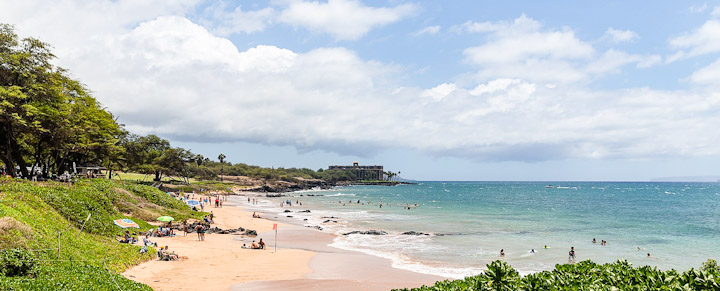
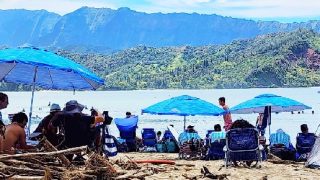
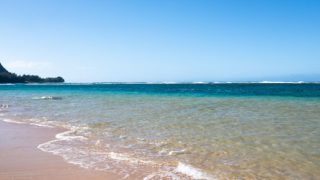
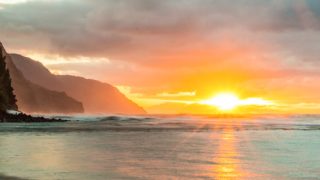
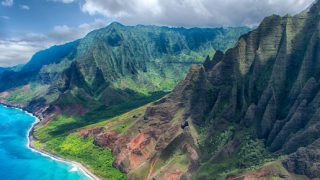
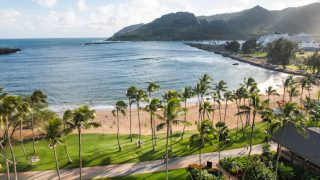
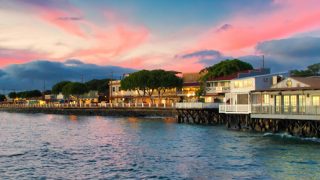
Well, Maui hotels(again) posted lower revenues and fewer visitors in May, so something is obviously working. You’re getting the results you wanted, so perhaps soon you’ll have the place to yourself and can find parking at your favorite beach or waterfall anytime you want! You certainly won’t see me there again-your message to “stay away” has come across clearly.
Wouldn’t it be wonderful to have excellent public transportation? I live on Hawaii Island and would love to have a bus that ran efficiently and on time . We could get rid of so many rental cars (and local cars like mine) to help clean up the air, and to avoid the dumped cars rusting out in fields and carparks.
Yeah, we’ll be passing on Maui in the future. Done Haleakula, Hana, Sacred Pools, etc. and very glad we did. Had business travel there many times as well, but this pushback is too much. I guess it’s the lack of total planning that irks our family. Mainly the lack of trolleys to the beaches instead of just this parking attack, which visitors see as hostile to them.
Hawaii isn’t the only place that gets a ton of tourist. I live in California and in a beach town. I get frustrated that I have to pay for parking and also must get to the beach real early just to get a spot anytime of the year. As a tourist I feel that a $30.00 per day is way too much and a $20.00 per day is fair. But as long as Maui keeps building, then it will be like Encinitas and just over crowed with residence, and you still have the same parking issues. I feel your pain Thank you, Bev
Hopefully, with this new revenue, you will be able to implement a trolly system to transport visitors,as is done in Waikiki. Good luck!
Pat and Don are quite correct. The reason some (and only some) locals might have preferred it during Covid is because they were getting a government stipend. Maybe they don’t realize that there’s no financial way that could go on forever – unless they prefer communism.
Once the pineapple and cane fields shrunk for condos and businesses Hawaii became a tourist-driven society. We depend upon that business.
I do think we can use a better enforcement all around (tourists AND locals) of the parking, zoning, drugs, and gang activity. I’ve seen hordes of drunk locals and tourists behaving abysmally.
BTW some of these people are getting their wish: Reservations in some areas are down 33%!!! How will they feel when You or your tutu gets laid off??
They’ll be fine. More time to surf and enjoy the now-empty beaches.
They will never have what they desire
Who buys your food?
People who get laid off get unemployment. Then, after that, they get government assistance. Also, the native Hawaiians get free plots of land for $1. Here’s the source:
dhhl.hawaii.gov/applications/applying-for-hawaiian-home-lands/
There are also a significant number of independently wealthy folks that live on the islands. They are often the loudest protesters of tourism. It’s the “I’ve got mine, everyone else shouldn’t be allowed” syndrome.
So, I think you can understand why many people on the islands don’t care if there are any jobs.
Take a closer look at the $1 land for natives, Pat. My good friend’s mother-in-law has one and she waited on a long list until quite old to get her property. I’m inclined to think that, like socialism, it sounds good until you learn it doesn’t work out well for the masses.
Not sure if they’re letting this get published but mainland reaction to this has been very negative. We know a real estate agent who lives in both Maui and Illinois (registered in Hawaii) who is already offering to shuttle prospective clients for free. There are always ways around fees, like carpooling, etc.
Often when we travel to other islands with a group one of the partners volunteers to be designated driver, especially when that person isn’t interested in the stop the others are going to.
Final thought (I’ve seen it mentioned earlier) What happens when you pay your $30 at 8am for a nice day at a beach and at 9am the weather takes an unpredicted shift to rainy and chilly? If there are no guarantees, will poor forecasts kill the day?
Will these new fees be applicable 12 months of the year or will they be seasonal? I love Maui and the ocean, but I don’t want to see any of it ruined. If I have to stay away, so be it.
To me it sounds like a great opportunity for Uber and Lyft drivers. They can over charge for rides and eliminate parking fees for the tourists.
Whenever government starts manipulating behavior there’s always unforeseen opportunities to make money. Private parking companies will also prosper, and they won’t care if you’re local or tourist
There will be so many side hustles to take advantage of tourists.
I’m telling you, be the first to buy a large Ford transit vehicle to chauffeur around tourists. They will pay it to jump-to the front of the line.
Not content to just make a beach visit as expensive as possible for visitors, Maui seems to be playing a game of “blame the tourist for all ills and make them pay”. The latest idea of making a hiking/trail years pass mandatory for all visitors was revealed last month, and now the county is searching for “expressions of interest” in managing popular tourist attractions in east Maui. Translated, that means charging to go look at a waterfall or walk a popular trail. Why don’t they just start charging a head tax for everybody that lands at the airport? Your aloha spirit has disappeared and blaming visitors for wear and tear is the wrong way to go about it. Maui has, sadly, been permanently crossed off our travel destination list.
Replying to Marianne- Why should 164,000 Maui residents pay for 3 million annual visitors to use their infrastructure, and green spaces?
Because you use it every single day
Tourists are already paying more than their fair share. They pay 17.25% of every night they stay, the highest in the nation. Plus they are only staying for a week or 2. Why shouldn’t we locals have to pay for how we use our infrastructure all year round?
Would you be happier if this charge was for Everyone? Similar to the way State and National parks across the country of done?
We pay dearly for our visits—we shop in your grocery stores, keep your overpriced restaurants afloat, pay hefty accommodation taxes, shop in your stores, pay steep admission prices to many tourist attractions, on top of the car rentals and airfare it costs to get there. Like it or not, tourism is your bread and butter, and until you come up with an alternative industry, it would be better if you dropped the vindictive attitude and used an even,fair hand in managing your resources. Remember Covid? Ask your hotel and restaurant workers if they really want to go back to that. The beaches were empty, but so were their pockets. It’s not a co-incidence that Maui just posted the lowest occupancy rate in March.
I feel like a broken record, but that’s all by design, I’m afraid. The locals are Thrilled that they have the lowest occupancy in March.
Like wars, the people just want to live peacefully able to control their own lives, but evil greedy people always over step for money. They overbuild hotels and over advertise. The economy didn’t need that much. Then they have to bring people from elsewhere to be maids, etc. causing more housing and crime because they are not always the best type of people.
Right, and your dreams are now coming true. What is confusing me, though is the “shock and surprise” expressed by BOH. This was the obvious strategy all along, written about here at length along with comment of support such as yours, and it all is ending with obvious results. Why the shock?
They tell you they want same or greater revenue with less tourists so everything will be artificially expensive
Marrianne: I lived in Washington state for a time during the pandemic, and the state had to add a paid reservation parking program to popular trail-heads of hiking areas. Badly done parking(and pooping and peeing and tp left everywhere) had to stop, so the reservation system means, you wake up on a nice day and think, “We could go hike such and such trail”, but since the reservations are full you don’t get to go. And, tourists set reservations and then change plans so don’t show up, but the $10 they paid is just part of the cost of vacation…
And let’s not forget the ban on styrofoam, which has effectively removed a favorite activity, boogie boarding. Yes,there are (very pricy) alternatives available, but this is an over-reaction. But then, Maui officials think tourists have bottomless pockets and are stupid enough to pay any high price that’s out there.
True boogie boards (body boards) are NOT made out of Styrofoam.
“Surlyn is the most common material used by bodyboard manufacturers (it’s the same plastic used to cover golf balls). It’s a rubber composition of ethylene resins and copolymers which have elastic properties”
What you are probably thinking of is the white, Styrofoam “float toys” that would breakup into tiny white pieces. Same as those cheap, white coolers people can buy.